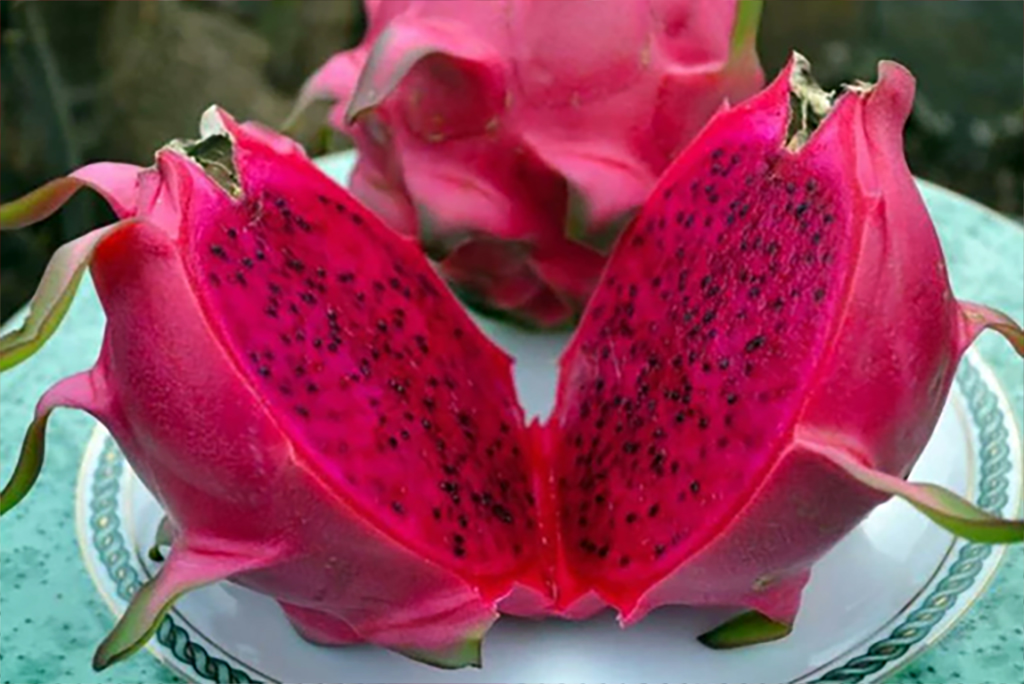Overview
Dragon fruit warnings: dragon fruit is a jewel in the colourful world of exotic fruits, enticing palates with its distinct flavour and eye-catching look. But just like with other cuisines, it’s important to understand the subtleties of dietary restrictions. In this thorough investigation, we examine the query, “Who can’t eat dragon fruit?” To fully comprehend the complexities of this delicious but unusual fruit, one must have a sophisticated awareness of a range of medical issues and dietary constraints.
Table of Contents
Revealing the Details: Dragon Fruit Warnings?

The Allergic Reactions
1. Allergies to Cacti
Although uncommon, people who are allergic to cacti could find themselves in the middle of an unforeseen problem. As a member of the cactus family, dragon fruit may cause allergic responses. From little swelling and itching to more serious symptoms, there is a wide spectrum of manifestations that call for caution.
2. Sensitivity to Latex
Dragon fruit may be small, but it is a major danger for someone navigating the world of latex allergy. This fruit can cause cross-reactivity when it comes to natural latex; therefore, those who are already sensitive to latex should proceed cautiously.
The Puzzle of FODMAP
1. Sensitivity to digestion
As we explore the complex realm of carbs, the FODMAP makeup of dragon fruit becomes clear. Fermentable oligosaccharides, disaccharides, monosaccharides, polyols, or FODMAPs can cause digestive distress. People who are sensitive to fructooligosaccharides (FODMAPS) or have irritable bowel syndrome (IBS) may need to avoid eating dragon fruit.
2. Diabetes: A Fine Balance
Those who are in control of their diabetes must give careful consideration to a healthy diet. The natural sugars in dragon fruit are quite small, but they should be taken into account when calculating total carbohydrate intake. When it comes to managing blood sugar, moderation and monitoring become crucial terms for individuals navigating the complex landscape.
The Potassium Dilemma

Renal Mysteries
For those who have kidney problems, dragon fruit might be a dangerous source of potassium. Maintaining potassium levels becomes a high-stakes game, a delicate tango. People who are restricted in potassium should use caution while deciding whether to indulge in dragon fruit, given their dietary restrictions.
Developing Dietary Guidelines

There is no denying the appeal of dragon fruit in the mosaic of food options. Recognising the exclusions, however, becomes crucial for people covered by particular health plans.
Creating Diets Specific to Allergies
Attention to detail is crucial when creating nutritional landscapes for people with latex sensitivities or cactus allergies. Other fruits with different allergenic profiles ought to be investigated to meet nutritional requirements without running the risk of negative responses.
Options that are friendly to FODMAP
It takes cunning to navigate the fruity landscape for the FODMAP-sensitive population. The key is to replace dragon fruit with FODMAP-friendly substitutes so that the journey is tasty without sacrificing intestinal health.
Options That Are Diabetes-Friendly
The management of diabetes requires careful consideration while making food decisions. It becomes a calculated decision to replace dragon fruit with fruits that have a reduced glycemic effect, allowing people to enjoy sweetness without disturbing their blood sugar levels.
Substitutions Mindful of Potassium
When it comes to renal restrictions, careful food alternatives are necessary. Choosing fruits that are lower in potassium becomes a crucial decision that lets people enjoy fruits while protecting their kidneys.
In summary
The mystery of who is unable to consume dragon fruit reveals itself as a complex story that intertwines dietary restrictions, allergies, and sensitivities. Although this exotic fruit adorns many a culinary scene, it serves as a compass for individuals traversing health landscapes when used with discernment. When food decisions reverberate through the wellness corridors, the search for substitutes and alternatives takes on a painful life of its own. Dragon fruit’s attraction finds its place in the ever-changing story of human health, delicately linked with the individual’s dietary needs and limits.
